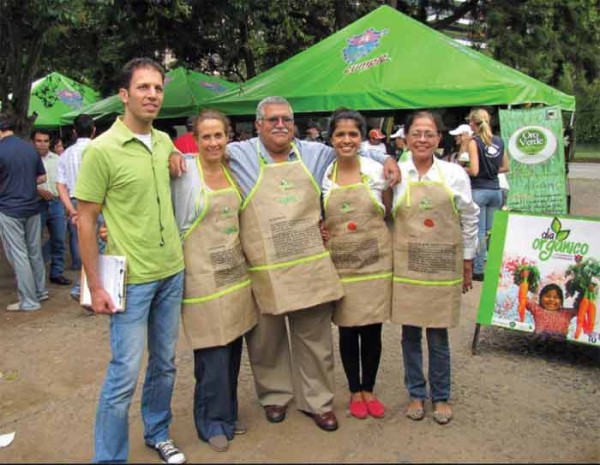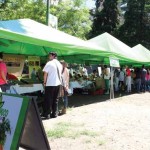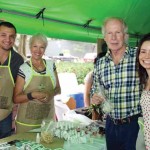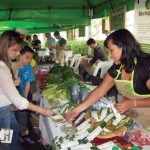Guatemala’s First Organic Market
What is normally a fairly toxic section of Avenida las Americas was converted into a haven of health last month as Guatemala’s first Organic Farmers’ Market came to town.
The event, held at Plaza Mexico during the capital’s popular Sunday activity Pasos y Pedales, showcased a diverse selection of natural and organically grown Guatemalan produce and opened with a short discussion about the benefits of going organic.
“You’re never going to get rid of toxins completely, but you can work to minimize them,” said nutritional counselor David Elron, who kicked off the event by spraying an apple with a can of insect repellent and asking the audience if anyone would like to eat it. “There were no takers,” he said with a laugh. “But spraying and worse is what actually happens in conventional agriculture, we just don’t get to see it.”
“99.9% of what you find in the supermarkets has been produced using pesticides, GMO (genetically modified organisms) seeds, herbicides, antibiotics, chemical fertilizers, growth hormones and other toxins. But this market is free of all that,” said Elron.
Together with the Municipality of Guatemala, the National Commission for Ecological Agriculture (CNAE) and the Ministry of Agriculture (MAGA), Elron partnered to organize El Día Orgánico to encourage people to live and eat more healthfully, as well as create a direct connection between farmers and their end consumers.
Hundreds of people, including Guatemala City Mayor Alvaro Arzu, turned out to browse the range of fresh vegetables and herbs, coffee, sugar, chocolate, moringa, cheese and jams that had been organically produced on fincas and in gardens and kitchens throughout the country.
Elron encourages his clients to eat healthy, fresh, organic food. However, until recently, sourcing fresh organic produce has been quite a challenge.
“I am so happy this market has come to be, as more and more people will become aware of the benefits of eating organics, not just for our own health, but for the health of our ecosystem—the animals, the rivers, the air, the planet. Supporting the organic movement is a great start in creating a cleaner, healthier planet,” said Elron.
Prior to the event, organizers visited each of the farms involved to ensure they complied with organic standards. Since international organic certification is expensive, only a handful of businesses in Guatemala, those that export their produce, have the globally recognized stamp. CNAE and MAGA are now working together to produce a low-cost Guatemalan accreditation to certify goods that have been organically produced in the country.
Event organizers said there is no doubt that El Día Orgánico is going to expand. The municipality is already planning to take it to other neighborhoods of the city, but for now it will continue on the third Sunday of each month between 11 and 13 calle of zone 13 on Avenida Las Américas, Guatemala City.
During the next market, on Nov. 18, Elron will have a booth dedicated to answering people’s questions about the benefits of eating organically and other matters of improving their diet with organic products.
“I am so happy this market has come to be, as more and more people will become aware of the benefits of eating organics, not just for our own health, but for the health of our ecosystem—the animals, the rivers, the air, the planet.”
- The Organic Market will be held on the third Sunday of each month between 11 and 13 calle of zone 13 on Avenida Las Américas, Guatemala City
- Guatemala City Mayor Alvaro Arzú (third from left) learns of the benefits of macadamia
- Visitors browse the booths of organic vegetables, herbs, coffee, sugar, chocolate, cheese and jams



